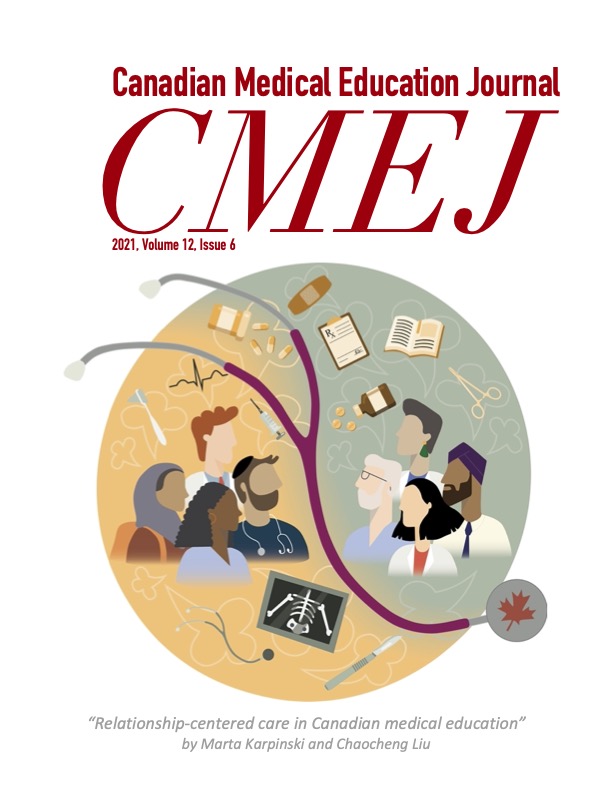Educators and practitioners’ perspectives in the development of a learning by concordance tool for medical clerkship in the context of the COVID pandemic
DOI:
https://doi.org/10.36834/cmej.72461Abstract
Background: The COVID-19 pandemic has forced medical schools to create educational material to palliate the anticipated and observed decrease in clinical experiences during clerkships. An online learning by concordance (LbC) tool was developed to overcome the limitation of students’ experiences with clinical cases. However, knowledge about the instructional design of an LbC tool is scarce, especially the perspectives of collaborators involved in its design: 1- educators who wrote the vignettes’ questions and 2- practitioners who constitute the reference panel by answering the LbC questions. The aim of this study was to describe the key elements that supported the pedagogical design of an LbC tool from the perspectives of educators and practitioners.
Methods: A descriptive qualitative research design has been used. Online questionnaires were used, and descriptive analysis was conducted.
Results: Six educators and 19 practitioners participated in the study. Important to the educators in designing the LbC tool were prevalent or high-stake situations, theoretical knowledge, professional situations experienced and perceived difficulties among students, and that the previous workshop promoted peer discussion and helped solidify the writing process. Important for practitioners was standards of practice and consensus among experts. However, they were uncertain of the educational value of their feedback, considering the ambiguity of the situations included in the LbC tool.
Conclusions: The LbC tool is a relatively new training tool in medical education. Further research is needed to refine our understanding of the design of such a tool and ensure its content validity to meet the pedagogical objectives of the clerkship.
Downloads
Published
Versions
- 2021-12-31 (2)
- 2021-10-25 (1)
Issue
Section
License
Copyright (c) 2019 Marie-France Deschênes, Bernard Charlin, Véronique Phan, Geneviève Grégoire, Tania Riendeau, Margaret Henri, Aurore Fehlmann, Ahmed Moussa

This work is licensed under a Creative Commons Attribution-NonCommercial-NoDerivatives 4.0 International License.
Submission of an original manuscript to the Canadian Medical Education Journal will be taken to mean that it represents original work not previously published, that it is not being considered elsewhere for publication. If accepted for publication, it will be published online and it will not be published elsewhere in the same form, for commercial purposes, in any language, without the consent of the publisher.
Authors who publish in the Canadian Medical Education Journal agree to release their articles under the Creative Commons Attribution-Noncommercial-No Derivative Works 4.0 Canada Licence. This licence allows anyone to copy and distribute the article for non-commercial purposes provided that appropriate attribution is given. For details of the rights an author grants users of their work, please see the licence summary and the full licence.











